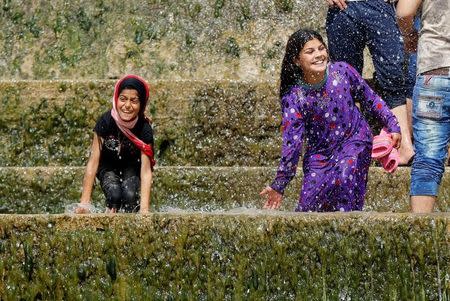Dolls, teddy bears return to eastern Mosul after Islamic State

By Mohammed Al-Ramahi MOSUL, Iraq (Reuters) - Toy shops are thriving in eastern Mosul, with Iraqi children once again able to buy dolls, teddy bears or action figures after Islamic State was driven out of the area. The militant group banned toys with faces or eyes during the three years they controlled Iraq's second largest city, including any anthropomorphic animals, which they deemed a form of idolatry. But when U.S.-trained security forces drove the group from eastern Mosul in January, two toy stores sprang up and there are now 15, toy wholesaler Abu Mohammed told Reuters. "Under Islamic State, any toys with faces we would have to make them veiled (if it is female) or only show eyes. Now this is no longer required and there is no ban on imports," he said at his shop, Alaad for Toys. Abu Mohammed imports toys from China and says that most of the large toy stores actually lie in the western side of the city, which is still the site of battle between Islamic State fighters and Iraqi security forces. "Most of the large toy stores are in the west, so as soon as liberated there will be an even bigger boom." For toy store owner Abu Seif, business is brisk. "Everything a child might want is available. Before there was a lot of things banned like images and faces, now a child can come choose whatever toys they want," he said. Parents say buying these toys for their children will help them move on after three years of war and terror. "Children were oppressed (under Islamic State), they didn't leave anything they didn't ban. No faces on toys," said Hassan, a father who was browsing for toys. "Everyone was oppressed young and old. The toys are back, life is back, we are free." For Taha, whose young son stared wide-eyed at dolls, giraffes, teddy bears, and ponies in the shop, the ban on toys was just the tip of the iceberg. "Those toys with faces were banned under the premise of apostasy and idolatry. These are myths. They are not Muslims, they are distorting Islam," Taha said of Islamic State. "Children are traumatised; they (Islamic State) ruined schools, they ruined toys, their (children's) lives are hell." (Writing by Ahmed Aboulenein; editing by Alexander Smith)

